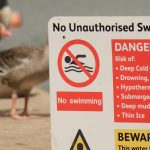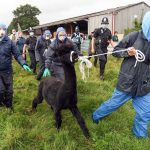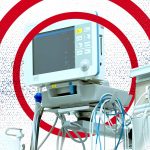Vaccine passports will be introduced in Scotland for entry into venues with large crowds from 1 October.
COVID-19 certification will be required to enter events such as nightclubs, music festivals and some football grounds.
MSPs in Holyrood voted by 68 to 55 in favour of a vaccine passport scheme on Thursday – a week after Scotland‘s First Minister Nicola Sturgeon announced she was intending to introduce the scheme.
Follow live COVID-19 updates from the UK and around the world
Please use Chrome browser for a more accessible video player
The new scheme is being introduced from 1 October as that is when all Scottish adults will have had the opportunity to receive both COVID-19 vaccines, with two weeks having passed to allow the vaccine to take effect.
People aged under 18 and adults who are ineligible for the vaccine will be exempt from the scheme.
It is hoped the scheme will keep cases in Scotland down after rising by 80% in the past week.
COVID-19: UK records 38,013 new infections and 167 more coronavirus-related deaths, latest daily figures show
COVID-19: Javid ‘confident’ booster jabs can start this month after AstraZeneca and Pfizer deemed safe by regulator
NHS waiting lists: Number of people waiting for hospital treatment in England hits record high again
The Scottish government said there are currently no plans to introduce certification for the wider hospitality industry, however, this will be kept under review over the autumn and winter.
Staff at venues will be able to download a verifier app from next week, ahead of the launch, to allow digital checks on the vaccine status of attendees.
Venues will also be provided with guidance on how to use the app and how to integrate it into their own systems.
Health Secretary Humza Yousaf said vaccine passports will “only be used in certain higher risk settings” in the hope this will allow businesses to remain open and prevent further restrictions being imposed in the autumn and winter.
He said he hopes the scheme will incentivise as many people as possible to get vaccinated, especially in the younger age cohort.
Mr Yousaf added: “We do not want to re-impose any of the restrictions that have been in place for much of this year as we all know how much harm they have caused to businesses, to education and to people’s general well-being. But we must stem the rise in cases.”






















